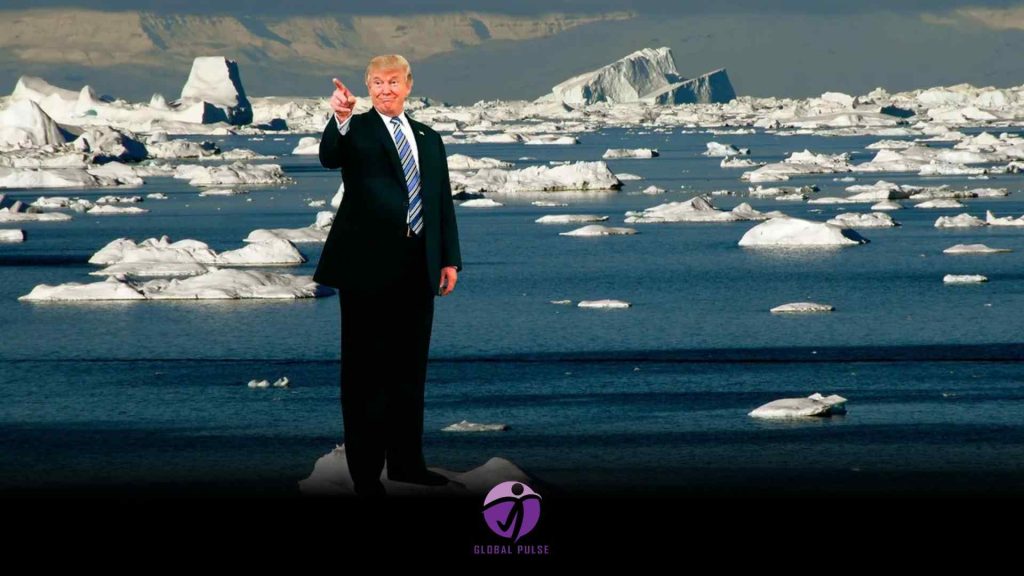Experts warn that Donald Trump‘s potential return to the White House could significantly hinder climate change initiatives in the immediate future, though the long-term consequences remain ambiguous.
As world leaders prepare to convene next week for the UN climate talks, COP29, the recent victory of Trump is poised to present a significant obstacle to advancements in reducing emissions and securing funding for developing nations.
The president-elect of the United States has established a reputation as a climate sceptic, labelling initiatives to enhance green energy as a “scam.”
As renewable energy continues to establish a significant presence in the United States, bolstered by widespread public support for wind and solar initiatives, the effectiveness of Trump’s push to increase oil and gas production may be questioned.
Although climate change was not a prominent issue in this year’s campaign, Trump’s potential actions in office may hold greater significance than his tenure in 2017.
At that time, he declared that the United States would withdraw from the Paris Climate Agreement, a pivotal United Nations initiative to address climate change. In a historic development, nearly every nation globally has agreed to reduce the greenhouse gas emissions contributing to global warming.
The impact of Trump’s decision was surprisingly contained. The treaty stipulations dictated that the United States could only exit in November 2020, just months before the conclusion of his presidency.
If Trump decides to withdraw once more, he will face a mere year-long wait before the United States is entirely out. This arrangement would provide him with three years to establish his direction, free from the obligations of reporting to the UN or adhering to its regulations.
As President Joe Biden’s negotiators prepare to attend the upcoming COP talks in Azerbaijan, any agreements reached will hold no binding authority for the Trump administration.
“The United States at this COP is not merely a lame duck; it is, in fact, a dead duck,” stated Professor Richard Klein, a specialist in climate change policy at the Stockholm Environment Institute.
“The inability to commit raises concerns that nations such as China may also hesitate to engage in commitments.”
In recent years, wealthier nations, including the United States, the United Kingdom, and European Union member states, have made efforts to boost financial resources for developing countries facing the challenges of climate change. However, they emphasize that major developing economies must also contribute.
The United States sought to compel China to contribute financially to that fund. They will no longer have the ability to proceed with that action. “That leaves China off the hook,” stated Professor Klein.
Experts in climate science assert that developing nations require substantial additional investment, amounting to billions of dollars, to achieve net zero emissions and mitigate the impacts of increasing global temperatures.
Despite the possibility of a swift exit from the Paris Agreement, Trump would remain obligated to adhere to other international initiatives to combat climate change.
Reports indicate that some of his supporters also consider distancing themselves from these. Some voices advocate for a total withdrawal from United Nations initiatives to address climate change. These proponents call on the president-elect to exit the UN Framework Convention on Climate Change, the treaty that serves as the foundation for international cooperation in combating climate change.
In 1992, the US Senate ratified this measure with near-unanimous support. Legal experts express uncertainty regarding the procedure for exiting the treaty. Yet, any attempt by the United States to withdraw is likely a significant setback to multilateral cooperation addressing the globe’s most pressing challenges.
The new Trump administration is expected to pursue significant domestic oil and gas exploration initiatives while also aiming to reduce environmental protections. Additionally, there are indications that heavy tariffs may be imposed on electric vehicles and solar panels imported from China.
“What we are witnessing is fundamentally a ‘drill baby drill’ philosophy,” stated Dan Eberhart, CEO of oilfield services firm Canary LLC, in an interview with Bloomberg News.
“Offshore lease sales are set to increase, pipelines are expected to progress faster, and fracking will occur on federal lands. This shift reflects a mindset aimed at reducing energy costs for consumers.”
On Wednesday, turbine manufacturers experienced a significant decline in share prices amid rising concerns that offshore wind farms in the United States could be cancelled under a potential Trump presidency.
In the long run, uncertainty looms over whether the newly elected president will reverse the progress made in the coal, oil, and gas industries or hinder the expansion of sustainable energy alternatives.
He encounters resistance, particularly from factions within his party.
The Inflation Reduction Act, championed by President Biden, is poised to direct $1 trillion towards green energy initiatives, significantly impacting Republican districts positively.
An analysis reveals that approximately 85% of the funding has been allocated to regions that voted for Republican candidates.
The International Energy Agency has revealed that global investment in clean technology is set to surpass that of coal, oil, and gas by a factor of two in 2024. This development raises questions about whether the new US administration will seek to foster green investment domestically or risk allowing it to flow to more receptive nations.
Climate leaders express optimism that the shift towards green energy will remain on track despite the incoming Trump administration.
“The outcome of this election is poised to deliver a significant setback to international efforts aimed at combating climate change,” stated Christiana Figueres, the former chief of the UN climate initiative.
“However, it is clear that these developments will not impede the ongoing efforts to decarbonize the economy and fulfil the objectives outlined in the Paris Agreement.”











